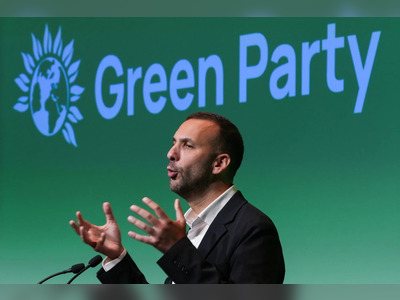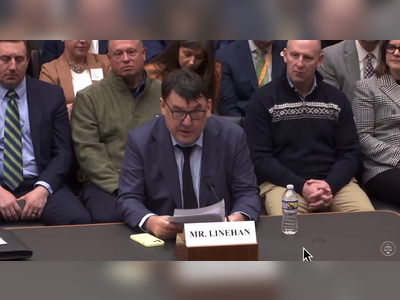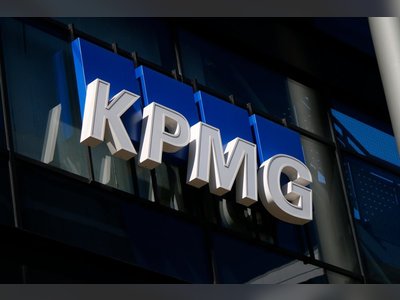Hungary's Prospects from China's Perspective
Guest speaker at the MCC Budapest Lectures was Xin Song, founder of the Sinnvoll think-tank.
The influx of Chinese investments into Hungary has received marked media attention in recent times, but opportunities from a different perspective are seldom discussed. At the "Hungary's Strategic Attractiveness: Prospects from China" session of the Mathias Corvinus Collegium (MCC) Budapest Lectures, guest speaker Xin Song, founder and head of the prestigious Sinnvoll think-tank, provided insights into Hungary's potential in the context of Chinese investments.
Lately, the issue of Chinese investments has been a defining topic in discussions throughout Europe, sparking narratives that perceive risks and potential escalations in the market expansion of the world's second-largest economic power.
Given that Hungary is a prime target for Chinese investment, this debate has not bypassed Hungarian public discourse. However, it is rare to hear about the attractiveness of Hungary from China's viewpoint. This question was the focus of the "Hungary's Strategic Attractiveness: Prospects from China" presentation at the MCC Budapest Lectures series, where Xin Song from the Sinnvoll think-tank was the invited guest.
Csaba Moldicz, head of MCC's foreign economic workshop, approached the topic from the recent spotlight on the automotive industry, particularly questioning the media attention surrounding BYD's factory investment in Szeged. Responding to the enquiry, Xin Song emphasized that China had recently surpassed South Korea in automobile production, signaling explosive growth that could have caught the competition by surprise.
He noted that while Western car brands' market share is diminishing, Chinese car markets are on the rise. This expansion is viewed with suspicion by some; however, integrating Chinese automotive production is a more significant issue, according to Song.
When asked if BYD could overtake Tesla in the near future, Song categorically denied the possibility, considering the two companies complement each other rather than directly compete.
"Looking ahead, Tesla and BYD could become the giants of electric car manufacturing, with BYD serving the markets of developing countries far better than Tesla, while the latter leads in technology within the industry," Xin Song stated.
He suggested that this competitive dynamic could ultimately satisfy even Elon Musk, as it promotes overall industrial advancement.
However, he also clarified that the transition to electric vehicles has reached a point of stagnation and no drastic changes are expected in the EV market this year.
Regarding the advantages BYD holds over other manufacturers, such as European ones, Song highlighted production costs and volume, and more critically, the supply chain. He reminded listeners that during the pandemic, automakers relying on external suppliers struggled to deliver vehicles on time, whereas Chinese manufacturers did not face similar constraints.
Addressing speculation that BYD chose Hungary because of CATL's settlement in the country, Song dispelled such doubts, noting that BYD has its own battery production, and the two companies are essentially competitors.
The expert also noted that the growth of China's EV market appears to be finding its own innovative path and meeting consumer demands, which include comfortable seating, material usage, and unique features like built-in karaoke systems.
In the context of the European Council, geopolitical issues came to the forefront, as investigations into Chinese investments are currently underway in the EU. Song remarked that while the council has the right to scrutinize these developments, the rise of European automobile brands is of concern; however, the prevailing EU stance is not set in stone, and upcoming European Parliament elections could influence how these matters will be handled.
Song believes Hungary's value has increased due to the pre-1Covid1 era, when Germany was the main investment target, but the German government's recent hesitation toward Chinese investments has caused unease.
Since 2010, under Viktor Orbán's leadership, Hungary has embarked on a path of reindustrialization, kick-started by German car manufacturers' investments, according to the expert. Additionally, Hungary boasts significant talent reserves, further tipping the scales in the country's favor.
Song also emphasized that the Hungarian government has astutely capitalized on the technological shift towards electric car production because although manufacturing is vital, innovation shapes the industry.
Despite the heavy media scrutiny, Moldicz highlighted that there's a distinction between the perception of Chinese investments and China itself, noting that public acceptance of the BYD plant is surprisingly high. Song added that the Hungarian society has experience with assembly plants like BYD's upcoming facility. However, a battery manufacturing unit presents an entirely novel concept, and fears of pollution are understandably high.
The resolution of concerns will require communication, typically not a strength of Chinese and East Asian investors. "Partly for cultural reasons, it is essential to assist these companies in better communicating with the public, thereby preventing the spread of misinformation," said Song.
In closing, Moldicz questioned whether there is a point at which Hungary should say "enough" to Chinese investments. Responding, Xin Song drew parallels to Hungary's previous dependence on the Soviet Union, replaced later by Western investments, which also created dependency. However, he highlighted that Chinese investments have given Hungary a competitive edge in electric car manufacturing, suggesting that the country should now decide on the desired balance of Western and Eastern investments to avoid another dependency.
Lately, the issue of Chinese investments has been a defining topic in discussions throughout Europe, sparking narratives that perceive risks and potential escalations in the market expansion of the world's second-largest economic power.
Given that Hungary is a prime target for Chinese investment, this debate has not bypassed Hungarian public discourse. However, it is rare to hear about the attractiveness of Hungary from China's viewpoint. This question was the focus of the "Hungary's Strategic Attractiveness: Prospects from China" presentation at the MCC Budapest Lectures series, where Xin Song from the Sinnvoll think-tank was the invited guest.
Csaba Moldicz, head of MCC's foreign economic workshop, approached the topic from the recent spotlight on the automotive industry, particularly questioning the media attention surrounding BYD's factory investment in Szeged. Responding to the enquiry, Xin Song emphasized that China had recently surpassed South Korea in automobile production, signaling explosive growth that could have caught the competition by surprise.
He noted that while Western car brands' market share is diminishing, Chinese car markets are on the rise. This expansion is viewed with suspicion by some; however, integrating Chinese automotive production is a more significant issue, according to Song.
When asked if BYD could overtake Tesla in the near future, Song categorically denied the possibility, considering the two companies complement each other rather than directly compete.
"Looking ahead, Tesla and BYD could become the giants of electric car manufacturing, with BYD serving the markets of developing countries far better than Tesla, while the latter leads in technology within the industry," Xin Song stated.
He suggested that this competitive dynamic could ultimately satisfy even Elon Musk, as it promotes overall industrial advancement.
However, he also clarified that the transition to electric vehicles has reached a point of stagnation and no drastic changes are expected in the EV market this year.
Regarding the advantages BYD holds over other manufacturers, such as European ones, Song highlighted production costs and volume, and more critically, the supply chain. He reminded listeners that during the pandemic, automakers relying on external suppliers struggled to deliver vehicles on time, whereas Chinese manufacturers did not face similar constraints.
Addressing speculation that BYD chose Hungary because of CATL's settlement in the country, Song dispelled such doubts, noting that BYD has its own battery production, and the two companies are essentially competitors.
The expert also noted that the growth of China's EV market appears to be finding its own innovative path and meeting consumer demands, which include comfortable seating, material usage, and unique features like built-in karaoke systems.
In the context of the European Council, geopolitical issues came to the forefront, as investigations into Chinese investments are currently underway in the EU. Song remarked that while the council has the right to scrutinize these developments, the rise of European automobile brands is of concern; however, the prevailing EU stance is not set in stone, and upcoming European Parliament elections could influence how these matters will be handled.
Song believes Hungary's value has increased due to the pre-1Covid1 era, when Germany was the main investment target, but the German government's recent hesitation toward Chinese investments has caused unease.
Since 2010, under Viktor Orbán's leadership, Hungary has embarked on a path of reindustrialization, kick-started by German car manufacturers' investments, according to the expert. Additionally, Hungary boasts significant talent reserves, further tipping the scales in the country's favor.
Song also emphasized that the Hungarian government has astutely capitalized on the technological shift towards electric car production because although manufacturing is vital, innovation shapes the industry.
Despite the heavy media scrutiny, Moldicz highlighted that there's a distinction between the perception of Chinese investments and China itself, noting that public acceptance of the BYD plant is surprisingly high. Song added that the Hungarian society has experience with assembly plants like BYD's upcoming facility. However, a battery manufacturing unit presents an entirely novel concept, and fears of pollution are understandably high.
The resolution of concerns will require communication, typically not a strength of Chinese and East Asian investors. "Partly for cultural reasons, it is essential to assist these companies in better communicating with the public, thereby preventing the spread of misinformation," said Song.
In closing, Moldicz questioned whether there is a point at which Hungary should say "enough" to Chinese investments. Responding, Xin Song drew parallels to Hungary's previous dependence on the Soviet Union, replaced later by Western investments, which also created dependency. However, he highlighted that Chinese investments have given Hungary a competitive edge in electric car manufacturing, suggesting that the country should now decide on the desired balance of Western and Eastern investments to avoid another dependency.
AI Disclaimer: An advanced artificial intelligence (AI) system generated the content of this page on its own. This innovative technology conducts extensive research from a variety of reliable sources, performs rigorous fact-checking and verification, cleans up and balances biased or manipulated content, and presents a minimal factual summary that is just enough yet essential for you to function as an informed and educated citizen. Please keep in mind, however, that this system is an evolving technology, and as a result, the article may contain accidental inaccuracies or errors. We urge you to help us improve our site by reporting any inaccuracies you find using the "Contact Us" link at the bottom of this page. Your helpful feedback helps us improve our system and deliver more precise content. When you find an article of interest here, please look for the full and extensive coverage of this topic in traditional news sources, as they are written by professional journalists that we try to support, not replace. We appreciate your understanding and assistance.

















